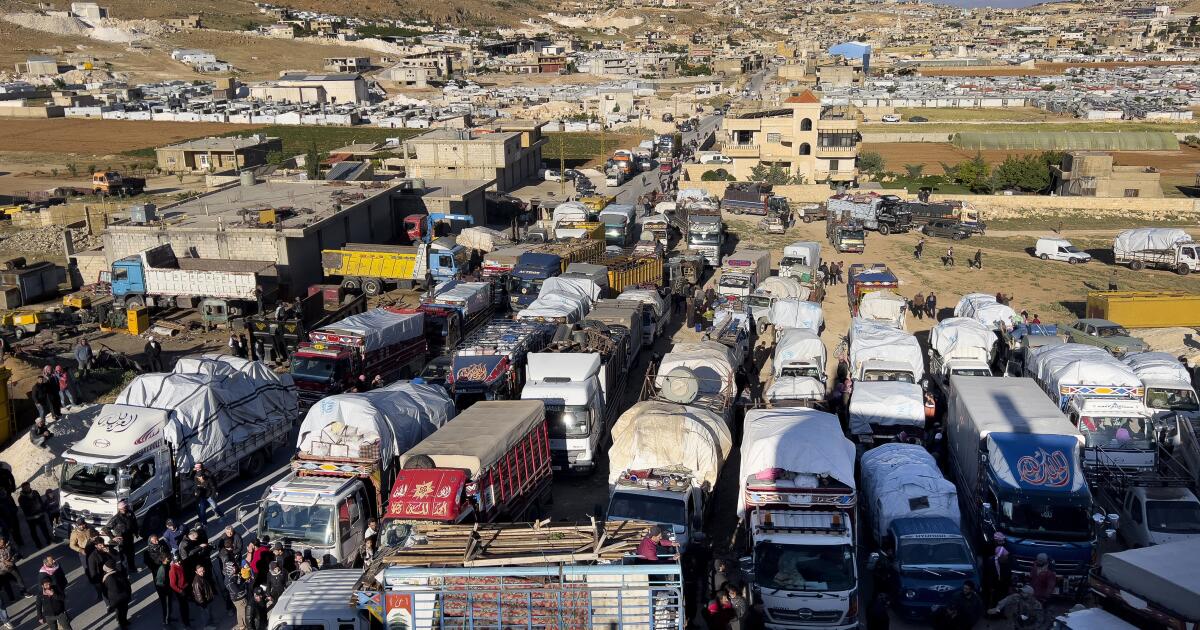DAMASCUS, Syria — Since the fall of Bashar Assad’s government in December, some 850,000 Syrian refugees have returned home from neighboring countries and the figure could reach 1 million in the coming weeks, a top official with the U.N. refugee agency said Monday.
According to Kelly T. Clements, deputy high commissioner of the Office of the United Nations High Commissioner for Refugees, about 1.7 million people who were internally displaced during the 14-year-old conflict have returned to their communities as the interim central government now controls large parts of Syria.
“It’s a dynamic period. It’s an opportunity where we could see potentially solutions for the largest global displacements that we have seen in the last 14 years,” said Clements, who has been in Syria for three days.
Syria’s conflict, which began in March 2011, has killed nearly half a million people and displaced half the country’s pre-war population of 23 million. More than 5 million Syrians fled the country as refugees, most of them to neighboring countries.
Clements said everybody has a different reason for coming back now, while some are delaying and waiting to see how things go.
As part of her visit, she went to a border crossing with Lebanon where she said she saw long lines of trucks and people waiting to head back to Syria.
Lebanese authorities had given an exemption to Syrians staying illegally in the country if they left by the end of August. Lebanon has the highest number of refugees per capita in the world, and in the past few days, thousands of Syrians headed back over the border.
“Returns numbers are exceptionally high,” Clements said.
Many Syrians had high hopes after Assad was brought down in an offensive by insurgent groups in early December. However, killings targeting members of Assad’s Alawite minority sect in Syria’s coastal region in March and against the Druze minority in the southern province of Sweida in July claimed hundreds of lives.
Clements said about 190,000 people were displaced in southern Syria as a result of the fighting in July between pro-government gunmen and Druze fighters.
She said the Damascus-Sweida highway, blocked for weeks by pro-government gunmen, is now open, “which is very important because that will allow much more relief to come into the area.”
Sanadiki writes for the Associated Press.
